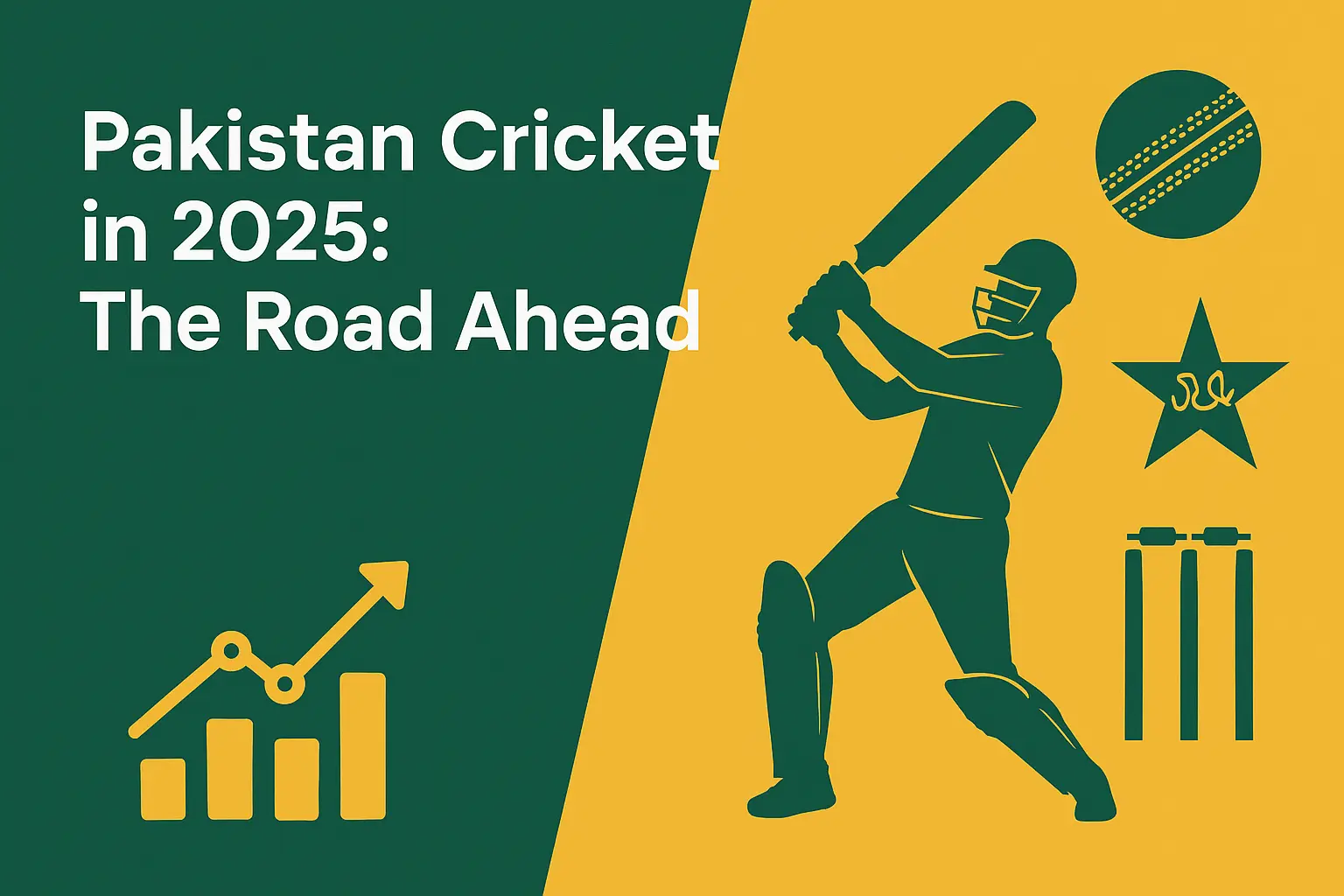Cricket in Pakistan has always been more than just a sport; it’s a passion, a unifier, and a source of immense national pride. As we approach 2025, the future of Pakistan cricket looks both promising and challenging. What does the road ahead hold for this cricket-loving nation? Let’s dive deep into the current landscape, the emerging talents, challenges, and the strategic vision that aims to take Pakistan cricket to new heights.
Introduction: The Journey So Far
Pakistan cricket has had a rollercoaster journey marked by iconic moments, legends, and unforgettable matches. From winning the 1992 World Cup to producing some of the best fast bowlers in history, Pakistan’s cricket story is rich and inspiring. Recently, the team has experienced mixed results, with flashes of brilliance tempered by inconsistency. The passion of fans remains undiminished, eagerly awaiting a resurgence on the global stage.
Current Landscape of Pakistan Cricket
Recent Performances and Achievements
The last few years have seen Pakistan making waves in international cricket, especially in limited-overs formats. Their aggressive brand of cricket, combined with raw talent, has led to memorable wins and exciting series. However, maintaining consistency in Test cricket remains a challenge. Pakistan’s victory in some key matches and the rise in rankings have kept hopes alive for a bright future.
Key Players to Watch
Stars like Babar Azam continue to shine as the backbone of Pakistan’s batting lineup. Fast bowlers such as Shaheen Afridi and Hasan Ali bring pace and aggression that unsettle opponents. The team also benefits from experienced campaigners who mentor the younger generation, creating a blend of youth and wisdom.

Emerging Talents Shaping the Future
Rising Stars in Batting
New talents are emerging with flair and determination. Young batters from domestic circuits and the Pakistan Super League (PSL) have shown glimpses of the next generation’s potential. Players like Haider Ali and Saud Shakeel are quickly gaining recognition for their technique and temperament.
Bowling Prospects for 2025
Pakistan’s historic strength has been fast bowling, and the future looks equally bright. Apart from established pacers, new names like Naseem Shah and Haris Rauf are making headlines with their speed and skill. Their ability to perform under pressure will be crucial as Pakistan seeks to reclaim its dominance in international cricket.
Challenges Facing Pakistan Cricket
Consistency Issues
One of the biggest hurdles remains inconsistent performances, especially in longer formats. Fluctuating team selections, a lack of stability in batting orders, and pressure handling are areas that need urgent attention.
Infrastructure and Facilities
Improving cricket infrastructure across Pakistan is crucial. While major cities boast good facilities, rural and smaller regions require better grounds, coaching, and training centres to tap into untapped talent pools.
Management and Administration
Administrative decisions impact on-field results. Transparent and efficient management practices must be prioritized to create an environment where players can thrive without distractions.
Impact of Technology and Analytics
Use of Data in Player Performance
Modern cricket heavily relies on data analytics to optimize player performance. Pakistan cricket is gradually embracing these tools to analyze opponents, refine strategies, and tailor training.
Modern Training Techniques
From biomechanics analysis to mental conditioning, incorporating scientific training methods will help Pakistan’s players reach their peak potential and reduce injuries.
The Role of Domestic Cricket
Pakistan Super League’s Influence
The PSL has revolutionized domestic cricket by providing a platform for young players to compete with international stars. It also attracts global attention, improving player exposure and experience.
Strengthening Regional Competitions
Building stronger regional and club competitions will widen the talent pipeline and prepare players for the demands of international cricket.
Vision for 2025: Strategic Plans
Youth Development Programs
A structured approach to youth cricket, including academies and talent hunts, will ensure a steady flow of skilled players ready for international challenges.
Coaching and Support Staff
Investing in world-class coaches and support staff will nurture talent and help players develop the all-round skills needed in modern cricket.
International Collaborations
Engaging with other cricket boards for joint training camps, exchange programs, and exposure tours will broaden players’ experiences and understanding of different conditions.
Pakistan Cricket’s Global Position by 2025
Rivalries and Key Matchups
Traditional rivalries, especially against India, will continue to electrify fans. Pakistan’s quest will be to convert these high-pressure games into consistent victories.
Hosting International Events
With improved security and infrastructure, Pakistan aims to host more international series and global tournaments, restoring its place as a key cricket venue.
Fans and Cricket Culture in Pakistan
Growing Fan Base and Engagement
Social media and digital platforms have expanded the fan base, making cricket accessible to younger generations and remote areas.
Role of Media and Social Platforms
Favourable media coverage and interactive content can enhance the sport’s popularity and contribute to building a stronger cricketing community nationwide.
Conclusion: Optimism and Expectations
Pakistan cricket stands at an exciting crossroads. The blend of emerging talent, strategic planning, and passionate support promises a brighter future. Addressing challenges with modern approaches will be crucial to achieving the goal of consistent success on the world stage by 2025. Fans have every reason to remain hopeful and supportive as Pakistan charts its road ahead.
Frequently Asked Questions (FAQs)
Q1: Who are the key emerging players for Pakistan cricket in 2025?
A1: Rising talents like Haider Ali, Saud Shakeel in batting, and Naseem Shah and Haris Rauf in bowling are expected to play crucial roles.
Q2: How is Pakistan improving its cricket infrastructure?
A2: Efforts include upgrading facilities in major cities, developing regional academies, and investing in better training equipment.
Q3: What role does the Pakistan Super League play in shaping future players?
A3: The PSL offers young players exposure to international competition and the chance to play alongside global stars.
Q4: What are Pakistan cricket’s most significant challenges currently?
A4: Inconsistency in performance, infrastructure gaps, and management issues are among the primary challenges.
Q5: How important is technology for Pakistan cricket’s future?
A5: Technology and analytics are increasingly vital for strategy development, player fitness, and enhancing overall team performance.